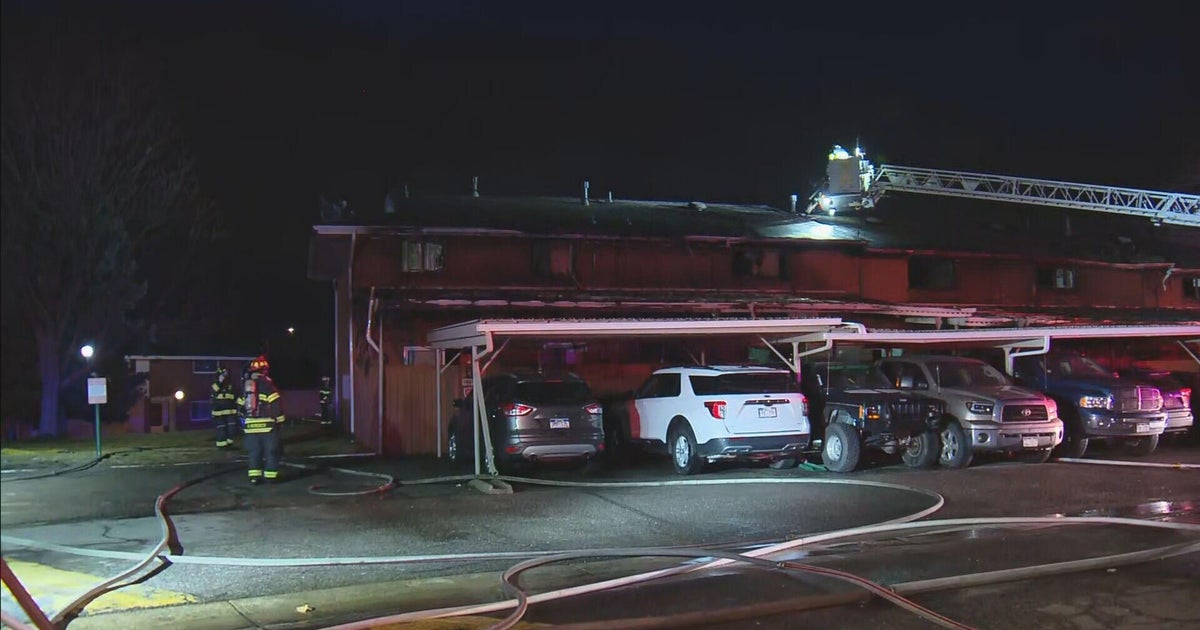Denver's new trash billing system fails to bill thousands of homes, city plans to back bill for last 14 months
More than a year after the City of Denver rolled out a new system billing residents for their trash service, internal city emails and data show at least 2,164 properties have not been billed at all, leading to as much as $545,000 in uncollected revenue. Another 6,680 properties are being billed a minimum rate as the city is not 100% positive if those properties have trash carts, and as many as 33,000 calls coming in monthly at one point from residents questioning their trash bills, cart questions and pickup inquiries.
"It's a work in progress and we're going to continue to work on it," said Nancy Kuhn, a spokesperson for Denver's Department of Transportation and Infrastructure, which oversees solid waste management and billing.
Kuhn said for homes that have erroneously not been billed since the new "volume-based trash pricing" system went into effect in January 2023, the city intends to claw back that revenue from residents through back billing.
"We are going to add them in the system and we are going to back bill," said Kuhn.
She did not indicate when those property owners might see the uncollected charges.
While Kuhn defended the new "pay as you throw" trash billing system, saying it collected $25 million in revenue in 2023, internal city data and emails obtained by CBS News Colorado indicate numerous problems with data and billing, some persisting into January of 2024 when one administrator complained in an email about ongoing billing problems, "I am not sure what is happening here... things seem to have gone awry."
Another manager wrote, "There are 12,000+ invoices that we are unable to mail from the most recent bill run." A co-worker on the email string responded, "This needs addressing immediately."
The problems have not been lost on Denver residents. In January of 2023, when the new billing system went live, the city recorded 33,000 inquiries that month from residents asking about their bills, trash cart issues and pickup questions. DOTI says the spike was expected and in December of 2023, that number was down to 9,000 calls in a month.
Some of the 2023 calls came from Eliott Gidan who lives in southeast Denver. Through 2023, he said he was billed incorrectly for a large-sized trash barrel when he had the smallest size.
"Very frustrating," said Gidan, "because I took the time to call in and each time they gave me a new case number and a new person. At least a dozen phone calls and hours of time."
Unable to get the city to correct his billing, after a year of seeking accurate billing, Gidan turned to the office of a city council representative who was able to get DOTI to correct the billing problem.
Others have not been so lucky.
According to monthly internal DOTI updates obtained via an open records request, in June of 2023 one budget manager issued a weekly recap saying they had found 24 cases "back to 311 dating back to January that were still open, not worked or rerouted back to us. These cases," wrote the manager, "have been sitting with 311 and were never re-routed..."
"Any time you stand up a new billing system," said Kuhn, "you're going to run into some bumps."
Kuhn said DOTI is sending personnel to the more than 2,000 addresses that have not been billed to verify those properties exist and are receiving trash service and should be billed.
She said another 6,682 customers who do not have a trash cart assigned to them in city databases are being billed a minimum fee for other trash services like large item pickup. If they had a medium or large cart, their charges would be higher. Kuhn said DOTI feels "pretty confident" in that property data but is checking systems on an ongoing basis to verify if those homes might actually have larger trash cans which would subject them to a higher charge.
"This work is continuous," said Kuhn, who said billing questions revolve around 5% of the addresses DOTI has in their system.
Asked what grade he would give the new city billing system, Eliott Gidan responded, "It would have to be a failing grade right now."
Kuhn was asked the same question but declined to provide a letter grade. She repeated, "It's a work in progress."







